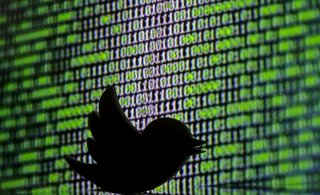Dangerous Political Agendas in India and Pakistan are Being Promoted Via Twitter
Twitter has been adopted by nationalist and extremist groups seeking to promote their political agendas by way of hashtags.
Hashtags such as #SayNoToWar and #BringAbhinandanBack trended heavily on social media as users on both sides came together to condemn war-mongering and hatred, demanding his dignified treatment and swift release, in line with the Geneva Convention
Prime Minister Imran Khan’s subsequent decision to release Varthaman days later was widely hailed as a gesture of peace and led to a de-escalation of the immediate crisis.
In spite of anger over India’s violation of Pakistan’s airspace during the Balakot incident, few social media opinion makers in Pakistan rushed to fan the flames of war with repeated calls for peace. Hussain Nadim, a former advisor to Pakistan on matters of security, planning and foreign policy, said in a tweet, “Not gonna lie but in this entire hashtag India-hashtag Pakistan fiasco in recent days I’ve found a new respect for Pakistani journalists, analysts, celebrities & twitter folks. No calls for war, jingoism or hate-mongering with India.”
Facebook and Twitter were introduced to the South Asian countries in 2006 and have left an indelible mark and a significant impact on society in both countries attracting millions of users. Together with platforms such as WhatsApp, YouTube and Instagram, they have become major disseminators of news and opinion among users.
Yet the platforms do not have a uniform effect on crisis dynamics, says MIT’s Narang. Different social media platforms can have a differing impact. Open social media platforms such as Twitter, for example, are more likely to thicken the fog of war in acute crises and can be used for external signaling to a larger target audience—adversaries and a broader international community.
Taberez Ahmed Neyazi of the University of Singapore analyzed Twitter data from two crises in 2016 between India and Pakistan—a terrorist attack on Indian security forces near the town of Uri in Kashmir and India’s subsequent “Surgical Strikes” on Pakistan.
His study, “Digital Propaganda, Digital Bots, and Polarized Politics in India,” reported that online public opinion had been manipulated, dissent suppressed and activists’ voices diminished.
A digital social media analyst in Pakistan, speaking on the condition of anonymity said Twitter has an immediate impact within the political community and is a powerful tool for engaging audiences and shaping public opinion. Tweets with hashtags also have a greater impact because they allow for social bonding similar to Facebook, but are more orientated towards issues and debates in Pakistan, she said.
Celebrities and religious leaders exert considerable influence over their millions of followers and in Pakistan can have a significant bearing on the public's attitudes towards a national crisis. The official Twitter account of Pakistan’s prime minister, for example, has nearly eleven million followers, while the director-general of the Inter-Services Public Relations, the media wing of Pakistan’s Armed Forces which coordinates and disseminates military news and information to the general public, has close to 3.3 million followers.
In India, Prime Minister Narendra Modi is one of the top Indian influencers on social media with more than forty-nine million Twitter followers. The second most popular Twitter account is that of Bollywood star Shahrukh Khan, who has nearly thirty-nine million followers.
Twitter has also been adopted by nationalist and extremist groups seeking to promote their political agendas by way of hashtags, such as the Pakistan Cyber Force and, in India, Clean the Nation.
In August 2019 when Modi stripped Kashmir off of its special status by abrogating Article 370 and taking away its semi-autonomy in the process, tweets from Pakistani politicians, celebrities and other opinion-makers hinted at utter disgust and condemnation. Prominent comedian, Ahmed Ali Butt, was quick to denounce Modi’s actions and tweeted: “Speak up and stop the madness. Stop killing innocent people.”
India and Pakistan will continue to be at loggerheads due to triggers such as India’s clampdown in Kashmir, the rise of Hindu nationalism, Pakistan’s inability to take effective action against militant groups based on its territory, and a quantitative and qualitative nuclear arms race in the region. As social media gives the public a voice, discussion of these differences and triggers will only become shriller and more amplified in this digital age but will afford a few solutions.
Sylvia Mishra is a researcher based in Washington DC working on nuclear strategy and South Asia
Hamzah Rifaat is a broadcast journalist based in Islamabad.
Image: Reuters

